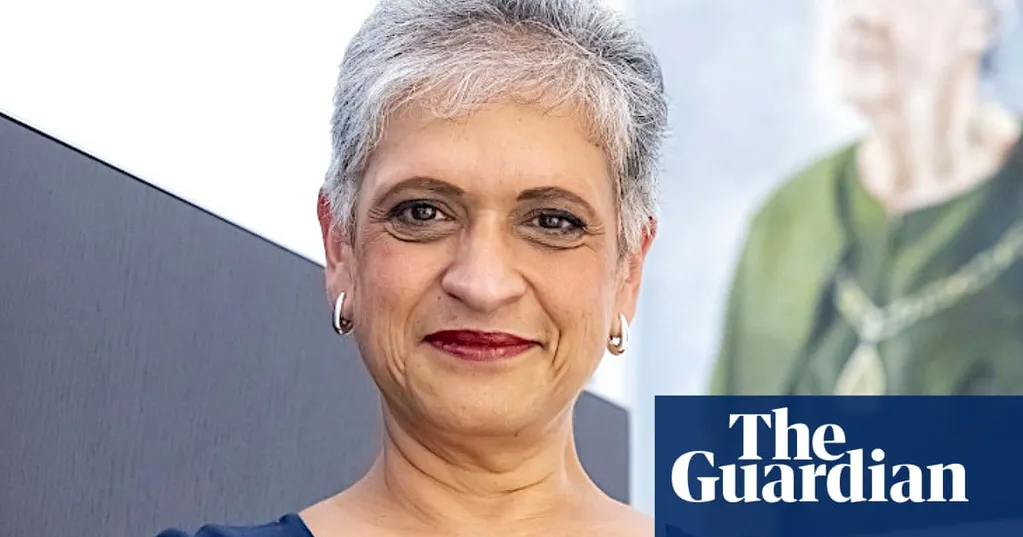GPs can no longer guarantee safe care for millions of patients because of a dangerous shortage of medics, Britain's top family doctor has said.
Prof Kamila Hawthorne, the chair of the Royal College of GPs (RCGP), said surgeries were desperate to hire more doctors to meet soaring demand for care but could not afford to do so because of a lack of core funding.
Exhausted family doctors have been working "completely unsafe hours" because their surgeries did not have the cash to recruit new staff or replace those quitting, increasing the risk of serious errors or deadly conditions being missed, she said.
"GPs will always push themselves to do what's best for our patients, but we can't go on like this," Hawthorne said. "GP workload pressures are so pronounced that many of our members are telling us they are worried they can't guarantee safe care when there aren't enough GPs to keep up."
She said decades of chronic underfunding had left general practice on the brink, with fewer family doctors unable to cope with record demand and an ageing population with increasingly complex conditions. The result was "unsustainable workloads" and "compromised" patient safety.
She raised the alarm in an interview with the Guardian as more than 8,000 GPs signed a letter to the health secretary, Wes Streeting, urging him to take action to train, recruit and retain more doctors and restore patient safety.
A fully qualified full-time GP in England is now responsible for 2,241 patients on average, a rise of 304 patients each (16%) in 10 years, Hawthorne said.
She said: "The number of patients per GP is rising higher and higher, while our clinical work has become more complex with our ageing population. We don't have the workforce to manage this safely or give the continuity of care that we know benefits patients."
A RCGP survey of GP practice managers found 61% needed to hire at least another GP in the next 12 months to cope with patient demand. However, 92% of those said a lack of core funding was preventing them from doing so.
One practice manager, who asked to remain anonymous, said: "Without additional funding, there is nothing we can do to resolve the situation. In our area the issue used to [be a] lack of people; now we have people available and no money to recruit with."
In the 12 months to September 2025, a record 386m consultations were delivered in England alone - the equivalent of more than a million a day and 86m more than the total in 2019. Yet many patients still face an uphill battle to get an appointment.
Hawthorne said: "We know how frustrating it can be for our patients when they struggle to see their GP. It's also frustrating for us when we know patients are struggling to access our services.
"The reality is GPs and our teams are delivering more appointments than ever, but we're struggling to keep up as patient numbers grow, the care they need becomes more complex, and practices are hamstrung by a lack of funding to hire the GPs they need."
Hawthorne's intervention comes amid a serious row between doctors and Streeting. The Guardian reported last week that hospital consultants were gearing up to join resident doctors in striking over pay.
At the England local medical committee conference earlier this month, grassroots GPs passed a motion for medics to refuse to comply with new online access requirements for surgeries.
From 1 October, GP surgeries in England have been required to keep their online consultation platform open for the duration of their working hours for non-urgent appointment requests, medication queries and admin requests.
The motion condemned the changes as "a cynical political stunt that is unfunded, unsafe and knowingly undeliverable in the context of current workforce collapse".
In the letter to Streeting signed by GPs, Hawthorne wrote: "We cannot keep expecting general practice to provide timely, safe care for patients if we simply do not have the means to do so.
"We know that when it comes to the NHS, access to GPs is the top priority for patients ... Growing concern around GP access comes as no surprise given practices around the country cannot afford to hire enough GPs to keep up with demand."
The Department of Health and Social Care said it was "grateful" to GPs for their "crucial work", adding: "We have placed them at the heart of our 10-year health plan and our neighbourhood health services."
A spokesperson said it had recruited 2,500 GPs, scrapped half of GP targets in order to reduce red tape and provided an extra £1.1bn in funding.
However, Hawthorne said the extra funding had been blunted by the government's decision to increase national insurance contributions. The RCGP survey found 83% of practice managers cited the rise in NICs as a driving factor in being unable to hire doctors.
She said: "We need more GPs - thousands more - but practices also need to be funded properly to hire them. We need the government to provide real detail - including numbers - in the 10-year workforce plan, on how we are to get the promised thousands more GPs on the frontline, delivering patient care.
"A plan without numbers isn't a plan at all, and while the government has made a number of promising commitments, we need a clear roadmap out of this crisis."
